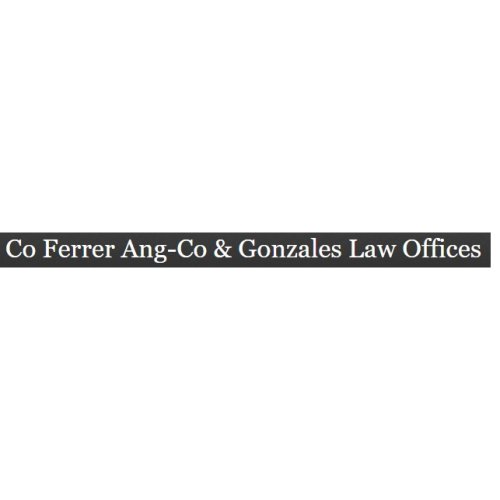Best Private Client Lawyers in San Juan
Share your needs with us, get contacted by law firms.
Free. Takes 2 min.
List of the best lawyers in San Juan, Philippines
Philippines Private Client Legal Questions answered by Lawyers
Browse our 2 legal questions about Private Client in Philippines and read the lawyer answers, or ask your own questions for free.
- Middle Name Issue
- My middle name is spelled wrong. The problem is I was born in Malabang and going to Malabang is not possible for me at the moment. Is there a way to change it with the help of a lawyer?
-
Lawyer answer by CAGUIA TAN & CUA Law Offices
Our office can assist you on this matter. Since traveling to Malabang is not possible for you, the law provides a solution called a Migrant Petition. How it works: You can file your petition at the Local Civil Registry Office...
Read full answer - Family wealth transfer into a living trust
- Hi I would like to have all my assets including but not limited to real estate chattels any any money including crypto transferred into a living trust online trustees can access upon my death
-
Lawyer answer by Recososa Law Firm
Hello: Creating a living trust in the Philippines is a wise estate-planning tool to ensure your family wealth is efficiently managed and transferred to your chosen beneficiaries without going through a lengthy probate process. Under Philippine law, a trust is...
Read full answer
About Private Client Law in San Juan, Philippines
Private Client law in San Juan, Philippines deals with the legal needs of individuals and families, particularly relating to personal assets, family relationships, and estate planning. This area includes wills and succession, tax and asset management, trusts, real estate transactions, family disputes, and related matters. San Juan, being part of Metro Manila, follows national Philippine laws and regulations, yet certain local procedures or bureaus may be relevant. The focus of Private Client legal services is to protect and manage personal wealth, ensure orderly succession, and resolve disputes among family members, making it highly personal and sensitive.
Why You May Need a Lawyer
Residents of San Juan may require a Private Client lawyer in several situations, such as:
- Drafting and executing a legally valid will
- Setting up or administering trusts for minors or dependents
- Resolving inheritance and succession issues among family members
- Managing property transfers and real estate transactions
- Handling guardianship or adoption
- Tax planning or compliance concerning personal assets
- Dealing with annulment, legal separation, or custody matters
- Appointing a medical or financial power of attorney
- Protecting personal assets from potential claims
- Navigating cross-border legal concerns if assets or heirs are abroad
A Private Client lawyer can provide expert advice, draft necessary documents, ensure compliance with local and national laws, and represent your interests in court or administrative proceedings.
Local Laws Overview
Private Client matters in San Juan are governed by Philippine laws, which include the Civil Code, Family Code, Tax Code, and relevant administrative regulations. Key areas include:
- Succession and Wills: The Civil Code outlines requirements for valid wills, intestate succession, and compulsory heirs.
- Family Relations: The Family Code handles marriage, separation, property relations, child custody, and adoption.
- Real Estate: Laws regulate property ownership, transfer, and inheritance, including documents required at the San Juan City Hall and Register of Deeds.
- Taxes: Estate tax and inheritance tax are imposed under the National Internal Revenue Code, managed by the Bureau of Internal Revenue (BIR), which requires proper documentation and timely filing.
- Trusts: While not as common as in other countries, trusts can be set up under certain circumstances with specific requirements.
- Local Procedures: Notarization, affidavits, and local clearances may need to be secured from local offices in San Juan for valid transactions.
It is crucial to comply with both national and specific local regulations to avoid delays, penalties, or disputes.
Frequently Asked Questions
What is a last will and testament, and why do I need one?
A last will and testament is a legal document that allows you to specify how your assets will be distributed after your death. Having one ensures your wishes are carried out and can help prevent disputes among heirs.
Who are considered compulsory heirs in the Philippines?
Compulsory heirs typically include your spouse, legitimate and illegitimate children, and legitimate parents or ascendants. They are entitled by law to a portion of your estate called the legitime.
How do I set up a trust for my minor children?
Trusts can be set up through a formal agreement, usually with the help of a lawyer. This allows you to appoint a trustee and define how assets are managed for your children's benefit until they reach a specified age or condition.
What steps are involved in transferring inherited property in San Juan?
Property transfer involves securing a Certificate of Title, settling estate taxes at the BIR, obtaining a tax clearance, and registering the transfer with the Register of Deeds and local assessor's office in San Juan.
What are the requirements for notarizing legal documents?
Most legal documents, such as wills, deeds of sale, and affidavits, must be notarized by a licensed notary public. You will need to appear in person with valid government-issued identification.
How long does probate or estate settlement take in San Juan?
The process can vary widely depending on the complexity of the estate. It may take several months to a few years, especially if there are disputes among heirs or incomplete documentation.
Can foreigners inherit property in San Juan?
Foreigners may generally inherit property in the Philippines through succession. However, ownership of land is restricted, and they may only inherit up to the extent allowed by laws such as condominium units and not land itself.
How is estate tax computed and settled?
Estate tax is computed based on the net estate value, applying rates from the BIR guidelines. Settlement involves filing the estate tax return, paying the due taxes, and submitting required documents within one year of death.
Do I need a lawyer to draft a will or transfer property?
While not legally required, consulting a lawyer is highly advised to ensure that all legal requirements are met and to avoid possible disputes or errors.
Where do I file for annulment, legal separation, or guardianship in San Juan?
These cases are filed at the San Juan Regional Trial Court, where the family law division has jurisdiction over such family-related matters.
Additional Resources
For those seeking further information or assistance with Private Client legal matters in San Juan, here are some helpful resources:
- San Juan City Hall - For local document processing, real property assessments, and civil registry
- Local Notary Public Offices - For notarization of legal documents
- Bureau of Internal Revenue (BIR) District Office - For estate tax and other tax-related matters
- Integrated Bar of the Philippines (IBP) - For lawyer referrals and legal assistance
- Register of Deeds, San Juan - For real property transfers, title verification, and registration
- Department of Social Welfare and Development (DSWD) - For matters involving guardianship or adoption
- Public Attorney's Office (PAO) - For free legal assistance to qualified individuals
Next Steps
If you need legal assistance in any Private Client matter in San Juan, Philippines, consider taking the following steps:
- Identify your specific legal issue and gather all relevant documents
- Consult with a reputable and experienced lawyer specializing in wills, estates, property law, or family law
- Contact the San Juan City Hall or relevant local bureaus for procedural guidance on required government processes
- Ask your lawyer for a clear explanation of processes, timelines, and potential costs involved
- If financial constraints are present, reach out to the Public Attorney's Office or Integrated Bar of the Philippines for assistance
- Always request official receipts, copies of documents, and ensure transactions are properly documented
Seeking early legal guidance can prevent costly mistakes and ensure your interests and those of your loved ones are well protected. If in doubt, consult a legal professional familiar with San Juan's local procedures and Philippine national law.
Lawzana helps you find the best lawyers and law firms in San Juan through a curated and pre-screened list of qualified legal professionals. Our platform offers rankings and detailed profiles of attorneys and law firms, allowing you to compare based on practice areas, including Private Client, experience, and client feedback.
Each profile includes a description of the firm's areas of practice, client reviews, team members and partners, year of establishment, spoken languages, office locations, contact information, social media presence, and any published articles or resources. Most firms on our platform speak English and are experienced in both local and international legal matters.
Get a quote from top-rated law firms in San Juan, Philippines — quickly, securely, and without unnecessary hassle.
Disclaimer:
The information provided on this page is for general informational purposes only and does not constitute legal advice. While we strive to ensure the accuracy and relevance of the content, legal information may change over time, and interpretations of the law can vary. You should always consult with a qualified legal professional for advice specific to your situation.
We disclaim all liability for actions taken or not taken based on the content of this page. If you believe any information is incorrect or outdated, please contact us, and we will review and update it where appropriate.
Browse private client law firms by service in San Juan, Philippines
San Juan, Philippines Attorneys in related practice areas.









